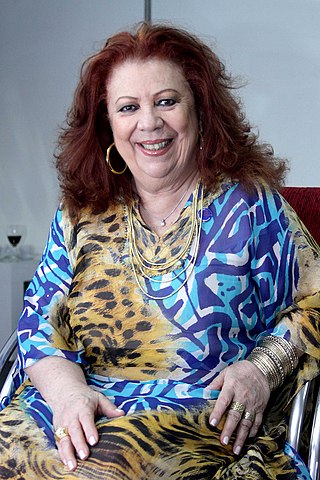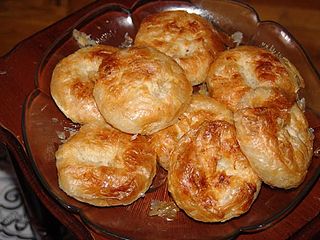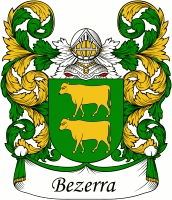
Sephardic Jews, also known as Sephardi Jews or Sephardim, and rarely as Iberian Peninsular Jews, are a Jewish diaspora population associated with the Iberian Peninsula. The term, which is derived from the Hebrew Sepharad, can also refer to the Jews of the Middle East and North Africa, who were also heavily influenced by Sephardic law and customs. Many Iberian Jewish exiled families also later sought refuge in those Jewish communities, resulting in ethnic and cultural integration with those communities over the span of many centuries. The majority of Sephardim live in Israel.
Sephardic music is an umbrella term used to refer to the music of the Sephardic Jewish community. Sephardic Jews have a diverse repertoire the origins of which center primarily around the Mediterranean basin. In the secular tradition, material is usually sung in dialects of Judeo-Spanish, though other languages including Hebrew, Turkish, Greek, and other local languages of the Sephardic diaspora are widely used. Sephardim maintain geographically unique liturgical and para-liturgical traditions.

Roberto Carlos Braga is a Brazilian singer-songwriter, also known as "King of Latin Music" or simply "the King". Most of his songs were written in partnership with his friend Erasmo Carlos. Roberto Carlos has sold over 70 million albums around the world. He is considered one of the most influential artists in Brazil, being cited as a source of inspiration by many artists and bands. His net worth is estimated at US$160 million.

Angra is a Brazilian power metal and progressive metal band formed in 1991. They have released ten regular studio albums, six EPs, and seven live CD/DVDs to date. Led by Rafael Bittencourt, the band has gained a degree of popularity in Japan and Europe.

Daniela Mercury is a Brazilian singer, songwriter, dancer, and producer. In her solo career, Mercury has sold over 11 million records worldwide, and had 24 Top 10 singles in the country, with 14 of them reached No. 1. Winner of a Latin Grammy for her album Balé Mulato – Ao Vivo, she also received six Brazilian Music Award, an APCA award, three Multishow Brazilian Music Awards and two awards at VMB: Best Music Video and Photography.
Spanish and Portuguese Jews, also called Western Sephardim, Iberian Jews, or Peninsular Jews, are a distinctive sub-group of Sephardic Jews who are largely descended from Jews who lived as New Christians in the Iberian Peninsula during the few centuries following the forced expulsion of unconverted Jews from Spain in 1492 and from Portugal in 1497. They should therefore be distinguished both from the descendants of those expelled in 1492 and from the present-day Jewish communities of Spain and Portugal.

Ignez Magdalena Aranha de Lima Barroso was a Brazilian sertanejo singer, guitarist, actress, TV presenter, librarian, folklorist and teacher.

Elizabeth "Beth" Santos Leal de Carvalho was a Brazilian samba singer, guitarist, cavaquinist and composer.

Sephardic Jewish cuisine, belonging to the Sephardic Jews—descendants of the Jewish population of the Iberian Peninsula until their expulsion in 1492—encompassing traditional dishes developed as they resettled in the Ottoman Empire, North Africa, and the Mediterranean, including Jewish communities in Turkey, Greece, Bulgaria, North Macedonia, and Syria, as well as the Sephardic community in the Land of Israel. It may also refer to the culinary traditions of the Western Sephardim, who settled in Holland, England, and from these places elsewhere. The cuisine of Jerusalem, in particular, is considered predominantly Sephardic.

Zélia Duncan, born Zélia Cristina Gonçalves Moreira, is a Brazilian singer-songwriter.

Bezerra is a Portuguese surname of Hebrew ancestry, popular among the Sephardi Jewish settlers in Northern Portugal. The name translates to 'heifer'. The first members of this family have origins in Ponte de Lima, the oldest Portuguese village, and can be traced back to the century XII.

The American Sephardi Federation, a founding member of the Center for Jewish History, is a non-profit Jewish organization that strengthens and organizes the religious and cultural activities of Sephardic Jews, preserves Sephardic heritage, tradition and culture in the United States, and assists in the publication of books and literature dealing with the Sephardic culture and tradition. The federation also works to further awareness of the former existence of large Jewish communities in the Muslim and Arab world.

Adio Kerida: Goodbye my Dear Love is a 2002 documentary by American anthropologist Ruth Behar that follows her trip to Cuba, which her family left when she was four. She searches for memories from her past and investigates the dwindling Sephardic Jewish community that remains, estimated at less than 800 in 2011.
The Quaternaglia Guitar Quartet (QGQ) is a classical guitar ensemble from São Paulo, Brazil, founded in 1992. The Quartet has become a reference both for its artistic excellence and for its contributions to the expansion of the guitar quartet repertoire. Quaternaglia has developed a canon of original pieces and arrangements with the collaboration of a variety of composers such as Egberto Gismonti, Leo Brouwer, Javier Farías, Sérgio Molina, Almeida Prado, Sergio Assad, João Luiz, Paulo Bellinati and Marco Pereira Quaternaglia’s current members are Sidney Molina, Thiago Abdalla, Fabio Ramazzina and Chrystian Dozza.

Hebe Maria Monteiro de Camargo Ravagnani was a Brazilian television host, singer and actress. She is considered the "Queen of Brazilian Television". She died at her home on 29 September 2012. Her net worth was over US$360 million.

Mônica Salmaso is a música popular brasileira (MPB) singer.
Ruth Machado Lousada Rocha, most known as Ruth Rocha is a Brazilian writer of children's books. Together with Lygia Bojunga, Ana Maria Machado and Eva Furnari she is one of the leading exponents of the new wave of Brazilian children's literature. Rocha graduated in Political Sociology at the University of São Paulo and postgraduated in Educational Orientation in the Pontifical Catholic University of São Paulo. She became a member of the Paulista Academy of Arts since October 25, 2007, occupying the chair 38.
Sephardic Bnei Anusim is a modern term which is used to define the contemporary Christian descendants of an estimated quarter of a million 15th-century Sephardic Jews who were coerced or forced to convert to Catholicism during the 14th and 15th centuries in Spain and Portugal. The vast majority of conversos remained in Spain and Portugal, and their descendants, who number in the millions, live in both of these countries. The small minority of conversos who emigrated normally chose to emigrate to destinations where Sephardic communities already existed, particularly to the Ottoman Empire and North Africa, but some of them emigrated to more tolerant cities in Europe, where many of them immediately reverted to Judaism. In theory, very few of them would have traveled to Latin America with colonial expeditions, because only those Spaniards who could certify that they had no recent Muslim or Jewish ancestry were supposed to be allowed to travel to the New World. Recent genetic studies suggest that the arrival of the Sephardic ancestors of Latin American populations coincided with the initial colonization of Latin America, which suggests that significant numbers of recent converts were able to travel to the new world and contribute to the gene pool of modern Latin American populations despite an official prohibition on them doing so. In addition, later arriving Spanish immigrants would have themselves contributed additional converso ancestry in some parts of Latin America.

Maria Ruth dos Santos Escobar, known professionally as Ruth Escobar was a Portuguese-born Brazilian film and television actress, businesswoman, and politician. A prominent icon in Brazilian theater, Escobar was one of the country's leading cultural producers and activists for the arts.
Judith Rita Cohen is a Canadian ethnomusicologist, music educator, and performer. Her research interests include Judeo-Spanish (Ladino) songs; medieval and traditional music from the Balkans, Portugal, French Canada, and Yiddish; pan-European balladry; and songs from Crypto-Jewish regions in Portugal. She has received numerous research and travel grants to do fieldwork in Spain, Portugal, Morocco, Israel, Turkey, Greece, France, Belgium, Canada, and the United States, and has published many journal articles, papers, and book chapters. She plays a variety of medieval musical instruments, and sings and performs as part of her lectures and in concerts and solo recitals. She is also the editor of the Alan Lomax Spanish collection maintained by the Association for Cultural Equity.













